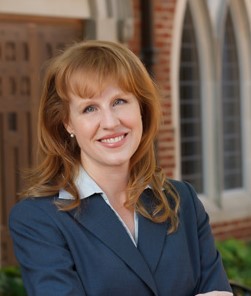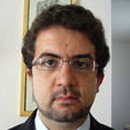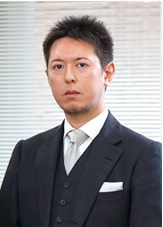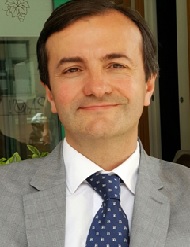Dr. Matilde Botto
Dr. Matilde Botto earned her PhD in Legal Studies at the University of Bologna in June 2024 for her dissertation “Autodeterminazione sessuale e consenso. Esigenze di riforma e tipizzazione dei crimini contro la libertà sessuale” (supervisor: Prof. Stefano Canestrari).
She is the author of several academic publications, including: “Rape as torture: il contrasto alla violenza di genere che passa attraverso la proibizione della tortura”, Criminalia, 2022, pp. 259-303; “Le molestie sessuali “dentro” e “fuori” dal confine dell'art. 609 bis c.p. Un’indagine sulla distinzione tra molestia e aggressione sessuale a partire dalla “doppia narrazione” degli “atti repentini””, Archivio penale (web), 2023, 2, pp. 1-55; “Le molestie sessuali alla prova del diritto vivente. Dall’ipertrofia applicativa dell’art. 609-bis c.p. a un insieme (fin troppo vario) di “soluzioni di completamento””, Diritto penale contemporaneo, 2024, 4, pp. 95-126.
Dr. Anna Costantini
Dr. Anna Costantini is Junior Researcher and Lecturer in Criminal Law at the University of Turin, where she earned her PhD in January 2022. She is the author of a monograph on preventive confiscation (Giappichelli, 2022). During her postdoctoral research, she also focused on the topic of criminalization of fake news.
She is visiting the Institute from March to May 2025, conducting research on the relationship between action and omission within complex organizations.
Birgit Partvei
Birgit Partvei from the University of Tartu and advisor to the criminal division of the Tartu District Court is a visiting researcher at the Institute in January 2025. She is researching the topic of crimes against natural and artificial parts of the human body.
Professor Dr. Corinna Barrett Lain

Professor Corinna Barrett Lain is a constitutional law scholar who writes about the influence of extralegal norms on Supreme Court decisionmaking, with a particular focus on the field of capital punishment. Her scholarship, which often uses the lens of legal history, has appeared in the Stanford Law Review, University of Pennsylvania Law Review, Duke Law Journal, UCLA Law Review, and Georgetown Law Journal, among other venues. Professor Lain is an elected member of the American Law Institute, and received the University of Richmond’s Distinguished Educator Award in 2006. She is a former prosecutor and an Army veteran.
She visited the Institute from 20 May to 20 June 2024.
Dr. Luigi Scollo
Luigi Scollo, PhD, is a legal scholar specializing in Criminal Law. He is visiting our Institute since April 2024.
He earned his Master of Laws (LL.M.) from Bocconi University in Milan in 2014 and completed his PhD in Legal Studies, Business and Social Law at the same institution in 2021 with distinction.
Currently, Dr. Scollo serves as a Postdoctoral Research Fellow in Criminal Law at the University of Bergamo (2022-2025). His research primarily explores the complexities surrounding corruption, economic crimes, corporate criminal liability and the evolving legal landscape concerning artificial intelligence systems' criminal responsibility.
Dr. Scollo's has taught Criminal Law at various institutions, including the University of Bari and the Accademia della Guardia di Finanza in Bergamo. Additionally, he has served as a Teaching Assistant in Economic Criminal Law at Bocconi University as well as the University of Bergamo.
He has published numerous articles and book chapters on topics ranging from ecocrimes, to corporate criminal liability and corruption and a book on international corruption. He actively presents his research at national and international conferences.
In addition, he currently is the Principal Investigator of European Research Group On Artificial Intelligence (ERGO AI) focused on the criminal liability of Artificial Intelligence and funded by Italian Ministry of Research and the European Union. He was visiting scholar at the Max Planck Institute for the Study of Crime, Security and Law in Freiburg, Germany.
Vincenzo Di Terlizzi
Vincenzo Di Terlizzi is a PhD student in Criminal Law at the Universities of Foggia (Italy) and Cologne. He has joined the Institute as a research fellow in April 2023.
His research focuses on environmental criminal law and delves into the specific issue of ecological mafia organizations (so-called ecomafias).
Professor Dr. Avlana K. Eisenberg
Professor Eisenberg’s research focuses on the law and practice of criminal punishment. Her work has been selected for the Harvard/Stanford/Yale Junior Faculty Forum and her recent publications have appeared in the UCLA Law Review, the Michigan Law Review, the Vanderbilt Law Review, the Southern California Law Review and the NYU Law Review. She is an elected member of the American Law Institute.
Karolina Kremens, LL.M., Ph.D.
Karolina Kremens, LL.M. Ph.D., is the Head of the Digital Justice Center at the University of Wrocław (Poland). Before joining the Center she was working for almost ten years at UWr as an Assistant Professor at the Department of Criminal Procedure where she was teaching Polish criminal procedure as well as comparative and international criminal procedure. She was accepted to the Bar in 2011 and has also experience as the Associate Prosecutor at one of the prosecution offices in Wrocław, Poland. She is an author of a book Powers of the Prosecutor in Criminal Investigation: A Comparative Perspective (Routledge, 2021). Dr Kremens is the recipient of the Fulbright Scholarship (UCONN Law School, USA) and McDougall Scholarship (UOttawa, Canada). She lectured at the University of Bologna, University of Exeter, Aberystwyth University and University of Toledo. She participated in national and international research projects including “Reasonable Search - Between Effective Investigation and Rights of Individual” funded by the Polish National Science Center (NCN) and “Knowledge, Advisory and Capacity Building Information Tool for Criminal Procedural Rights in Judicial Cooperation” (CROSSJUSTICE) awarded by the European Commission. Her research interests focus on the impact of new technologies on criminal justice process, gendered perspective on criminal process as well as on comparative and international criminal procedure.
Wojciech Jasiński, Ph.D.
Wojciech Jasiński, Ph.D., habilitation in law, works as an Assistant Professor at the Digital Justice Center at the University of Wrocław (Poland) and as a Member of the Research and Analyses Bureau of the Polish Supreme Court. He is also a Member of the Legal Expert Group of Stefan Batory Foundation, one of the leading Polish NGOs. Wojciech Jasiński was awarded a French Government Scholarship (Université Paris 1 Panthéon- Sorbonne) and in 2015 a Minister of Science and Higher Education Scholarship for Outstanding Young Researchers. He participated in several national and international research projects including ‘Compensation for Wrongful Deprivation of Liberty. Theory and Practice’ funded by the Polish National Science Center and “Knowledge, Advisory and Capacity Building Information Tool for Criminal Procedural Rights in Judicial Cooperation” (CROSSJUSTICE) funded by the EU. Wojciech publishes in Polish and English on various aspects of criminal procedure, law of evidence and human rights in criminal proceedings. His habilitation book regarding illegally obtained evidence in criminal proceedings was awarded first prize in the Competition for most useful law book for the administration of justice in 2019 organized by Wolters Kluwer Poland.
Kaja Kowalczewska, Ph.D.
Kaja Kowalczewska, Ph.D. in law, works as Assistant Professor at the Pedagogical University of Cracow and Research Associate at the Digital Justice Center at the University of Wrocław (Poland). She graduated from Jagiellonian University of Cracow, University of Orléans (France), Panthéon-Assas University (France) and College of Europe (Natolin Campus, European Commission scholarship). Her international experience includes inter alia research stays at the Hague Academy of International law, PREMT at the University of Melbourne, Kalliopi Koufa Foundation and MCDC NATO-ACT. Holder of the Polish National Science Center grants (PRELUDIUM and ETIUDA) and the Ministry of Education ‘Excellent Science’ scholarship. In 2020 her doctoral dissertation on ‘Lethal systems with progressive autonomy - an international legal analysis’ was awarded the first prize in Polish Red Cross competition. Dr Kowalczewska publishes in Polish, English and Russian on new disruptive technologies and their impact on public international law and human rights, especially on international law of armed conflicts and international criminal law.
Artur Kowalczyk
Artur Kowalczyk – Ph.D. student at the Department of Criminal Procedure at the Faculty of Law, Administration and Economics, University of Wrocław, Poland was visiting our Institute January 2020.
He was also a judge trainee at the National School of Judiciary and Public Prosecution. In 2019 he passed judicial exam.
He participates in a project on compensation for wrongful deprivation of liberty financed by the Polish National Science Center led by Wojciech Jasiński, Ph.D. His research focuses mainly on Polish and comparative criminal procedure, especially illegally and improperly obtained evidence.
Please follow the link for further information.
Assist. Prof. Dr. iur. Öznur Sevdiren
Öznur Sevdiren is an Assistent Professor from Istanbul Bilgi University / Faculty of Law Criminal and Criminal Procedure Law. Please find her CV here.
Professor Anneli Soo
Anneli Soo is an Associate Professor in Criminal Law at the University of Tartu, Estonia.
From 1.09.2018-31.08.2019 she conducts research as a Humboldt Experienced Researcher at the Institute for Foreign and International Criminal Law, University of Cologne on the right for access to case files in pre-trial stages of criminal proceedings as provided in the Directive 2012/13/EU. From 2016-2017 she was as a Marie Skłodowska-Curie researcher at the Faculty of Law, Maastricht University conducting a research project ‘Towards Guaranteeing the Right to Effective Assistance of Defence Counsel in Member States in Trans-border Criminal Cases’. Since September 2007 she has been teaching at University of Tartu criminal law and defence rights. At first she did it as a practitioner, but in September 2014 she became a lecturer on criminal law at the University of Tartu (in 2018 she became an Associate Professor). She worked as a criminal counsellor from 2007 until 2011 at the Supreme Court of Estonia. In January 2012 she defended her PhD ‘Remedies against Ineffectiveness of Defence Counsel. Judicial Supervision over the Performance of Defense Counsel in Estonian Criminal Proceedings’ at the University of Tartu. She was the first Estonian scientist to receive a Fulbright Schuman scholarship to conduct research at Californian State University, Fullerton, United States in 2012 shortly after her thesis defence. Since 2016 she is a Member of the Legal Experts Advisory Panel at Fair Trials International, and a member of ECLAN.
Her CV can be found here.
Professor Luigi Cornacchia

I. Persönliche Daten
Geboren am 31.3.1969 in Bologna/Italien
Staatsangehörigkeit: Italien
Dienstl. Adresse: Dipartimento di Scienze Giuridiche, Università del Salento, Lecce
“Struttura Campus” - Via dei Tufi, I-73100 Monteroni (Lecce)
E-mail: luigi.cornacchiagmail.com, luigi.cornacchia
unisalento.it
II. Akademischer Grad
- 1992: “Dottore in Giurisprudenza” (Universität Bologna/Italien – 110/110 cum laude: Beste Benotung).
- 1999: Doktorat im Strafrecht (Universität Trient/Italien).
III. Hochschulstudium
- 1988/1992: Studium der Rechtswissenschaft an der Juristischen Fakultät der Universität Bologna/Italien mit Abschlußprüfung und “Tesi di laurea” (Thema: „Ärztliche Behandlungen und strafrechtliche Verantwortung“)
- 1995/1998: Promotion an der Universität Trient/Italien (Thema der Dissertation: „Die Mitverursachung durch voneinander unabhängige fahrlässige Verhaltensweisen“)
IV. Beruflicher Werdegang
- 2000: Forschungsstipendium (2 Monate), finanziert durch die Max-Planck-Gesellschaft/Deutschland (Thema: „Die Mitverantwortung, mit besonderer Rücksicht auf der Beteiligung an der fahrlässigen Straftat“)
- 26.4.2000 – 28.4.2000: tätig bei der Karl-Franzens-Universität Graz (Österreich) als Prüfer im Rahmen des strafrechtlichen Intensivprogrammes (Erasmus-Sokrates)
- 2001: Stipendium für die Forschung im Ausland (12 Monate), finanziert durch das italienische „Consiglio Nazionale di Ricerca“ [C.N.R.] (Thema: „Strafrechtliche Aspekte der genetischen Manipulationen“)
- 2001: „Assegno di ricerca“ (Forschungsvertrag, 36 Monate), finanziert von der Universität Bologna/Italien (Thema: „Strafrechtliche Aspekte der Biotechnologien“)
- 28.3.2006: Alexander von Humboldt-Stipendium (Projekt: “Funktion und Legitimation der Strafe im Rahmen der Zuständigkeit des Internationalen Strafgerichtshofes (IStGH)”)
- 2012: Alexander von Humboldt-Stipendium (Wiederaufnahme)
- 2013: Jemolo Fellowship, Nuffield College, Oxford (UK)
- Seit Januar 2005: “Ricercatore universitario” (Hochschulassistent) an der rechtswissenschaftlichen Fakultät der Universität Lecce/Italien, beim Lehrstuhl von Strafrecht.
- Seit Mai 2005: “Professore associato” (Professor 2. Niveau) an der rechtswissenschaftlichen Fakultät der Universität Lecce/Italien, Lehrstuhl von Strafrecht.
- Seit Januar 2014: Habilitiert als „Professore straordinario“ (Professor 1. Niveau)
- Mitglieder der „Associazione Franco Bricola”, „VEREINIGUNG FÜR DEN GEDANKENAUSTAUSCH ZWISCHEN DEUTSCHEN UND ITALIENISCHEN JURISTEN“, „Association Internationale de Droit Penal“ (AIDP); „World Society of Victimology“
Preise
14 Oktober 2006: Premio “Ettore Gallo”, Istrevi – Buch “Concorso di colpe e principio di responsabilità penale per fatto proprio” (Giappichelli, Torino, 2004)
V. Studienaufenthalte in Deutschland
Mehrere Aufenthalte zur wissenschaftlichen Forschung:
- 1.7.-31.8.1996: am «Deutschen Institut für die gesamte Strafrechtswissenschaft» München (2 M.)
- 1.11.1997-31.10.1998: am «Max-Planck-Institut für ausländisches und internationales Strafrecht» Freiburg i.Br. (12 M.)
- 17-24.8.1999: am «Institut für Kriminologie und Wirtschaftsstrafrecht» Freiburg i.B. (1 Woche)
- 1.10.1998-31.3.1999: am «Rechtsphilosophischen Seminar der Rechts- und Staatswissenschaftlichen Fakultät der Rheinischen Friedrich-Wilhelms-Universität» Bonn (6 M.)
- 1.5.-30.6.2000: am «Max-Planck-Institut für ausländisches und internationales Strafrecht» Freiburg i.Br., finanziert durch die Max-Planck-Gesellschaft: (2 M.)
- 1-10.2001-10.10.2002: am «Rechtsphilosophischen Seminar der Rechts- und Staatswissenschaftlichen Fakultät der Rheinischen Friedrich-Wilhelms-Universität» Bonn, finanziert durch das italienische „Consiglio Nazionale di Ricerca“ (12 M.)
- 1.10.2006-30.9.2007: am «Rechtsphilosophisches Seminar der Rechts- und Staatswissenschaftlichen Fakultät der Rheinischen Friedrich-Wilhelms-Universität» Bonn (6 Monaten) und beim «Institut für Strafrecht und Strafprozessrecht» Köln, finanziert durch AvH-Stiftung (12 M.)
- 30.7.2012-31.8.2012: am «Institut für Kriminalwissenschaften, Westphälische Whilhelm-Universität» Münster, finanziert durch AvH-Stiftung (1 M.)
Professor Shinya Fukamachi

Professor Shinya Fukamachi
I. Persönliche Daten
Geboren am 20.07.1974 in Tokio/Japan
Staatsangehörigkeit: Japan
Dienstl. Adresse: Law School, Universität Rikkyo, Nishi-ikebukuro, 1718501, Tokio
E-Mail: sfukamachi(at)rikkyo.ac.jp
II. Beruflicher Werdegang
01.04.2001-31.03.2003: Assistant Professor an der Universität Okayama
01.04.2003-31.03.2004: Assosiate Professor an der Universität Okayama
01.04.2004-31.03.2008: Associate Professor an der Universität Hokkaido
01.04.2008-31.03.2012: Associate Professor an der Universität Rikkyo
Seit 01.04.2012: Professor an der Universität Rikkyo
III. Studienaufenthalte in Deutschland, Österreich und Schweiz
26.08.2010-21.08.2012: Gastforscher am Institut für ausländisches und internationales Strafrecht, Universität zu Köln
29.07.2013-20.08.2013: Gastforscher am Institut für ausländisches und internationales Strafrecht, Universität zu Köln
04.08.2014-20.08.2014: Gastforscher am Rechtswissenschaftlichen Institut, Universität Zurich
31.07.2015-17.09.2015: Gastforscher am Institut für Strafrecht und Kriminologie, Universität Wien
31.07.2016-18.09.2016: Gastforscher am Rechtswissenschaftlichen Institut, Universität Zurich
01.08.2018 - 31.08.2018: Gastforscher am Institut für ausländisches und internationales Strafrecht, Universität zu Köln
01.08.2019 - 31.03.2020: Gastforscher am Institut für ausländisches und internationales Strafrecht, Universität zu Köln
Professor Eduardo Demetrio Crespo

Short Biography
Born in Solothurn (Switzerland) on August 28, 1970. He was granted his LLB (1993) and PhD (1997) at the University of Salamanca. Since 2010, he is a Professor of Criminal Law at the University of Castilla-La Mancha in Toledo, where he was the vice-dean for legal studies (2003-2004). He has participated as a speaker delivering scientific lectures in international conferences and he has been a Visiting Fellow in Germany, the United Kingdom and Italy. He was a Visiting Research Scholar (Spain Government-funded PhD Scholarship) at University of Cologne (1994-1995), Research Scholar at the Ludwig-Maximiliams-University Munich (2004), Humboldt Foundation Research Fellow at University of Cologne (2005-2006), Max Planck Research Scholar at the Max Planck Institute for Foreign and International Criminal Law in Freiburg im Breisgau (2008), Visiting Research Scholar at University of Cambridge (2009, 2012), working as the principal investigator of a Spain Government-funded project entitled “Neuroscience and Criminal Law: a new approach to culpability”, HWK Research Fellow at the Institute for Advanced Study in Delmenhorst (2010), Visiting Academic at University of Kiel (2013) and Visiting Research Scholar (Spain Government-funded Senior Research Scholarship) at European University Institute in Florence (2016). He is an associate member of several Spanish and International Scientific Committees and member of the Institute of European and International Criminal Law at University of Castilla-La Mancha and of the Institute of Forensic Sciences and Security at Autonomous University of Madrid. He is the Director of the Postgraduate Course on “Economic and Corporate Criminal Law” at the University of Castilla-La Mancha and of the legal database entitled “Biblioteca Básica de Derecho Penal y Ciencias Penales”, which is published by Iustel.
Research Abstract
His main research interests are general principles of Criminal Law, Philosophy of Criminal Law, Criminal Law policy and Corporate crime. He is currently working on interdisciplinary research between Neuroscience and Criminal Law. He has written about forty articles and several monographs, such as “Prevención general e individualización judicial de la pena” (1999; 2. Ed., 2016), “La tentativa en la autoría mediata y en la actio libera in causa” (2003), “Culpabilidad y fines de la pena “(2008), “Responsabilidad penal por omisión del empresario” (2009). He is one of the authors and the coordinator of the Handbooks entitled “Lecciones y materiales para el estudio del Derecho penal. Tomo II. Teoría del delito” (2. Ed., 2015) and “Curso de Derecho penal. Parte General” (3. Ed., 2016). He has also edited several books, such as “Cuestiones actuales de Derecho penal económico (2008); Terrorismo y Estado de Derecho” (2010); “Cuestiones actuales de Derecho penal empresarial” (2010), “El Derecho penal económico y empresarial ante los desafíos de la sociedad mundial del riesgo” (2010), “Neurociencias y Derecho penal” (2013), “Crisis financiera y Derecho penal económico” (2014), “Legalidad y defensa. Garantías constitucionales del Derecho y la Justicia penal” (2015), “Halcones y Palomas: corrupción y delincuencia económica” (2015). He has also translated several articles from German to Spanish.